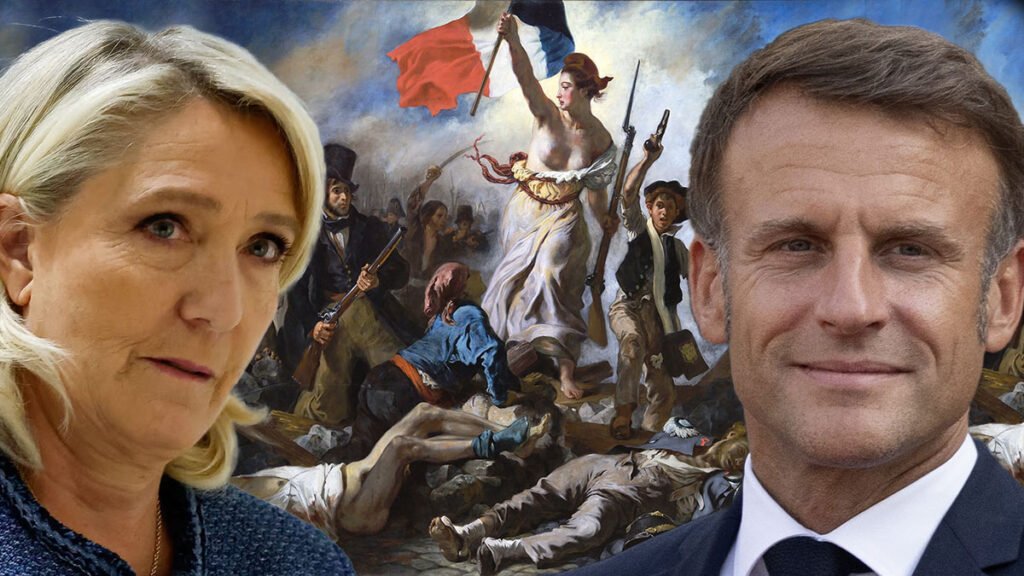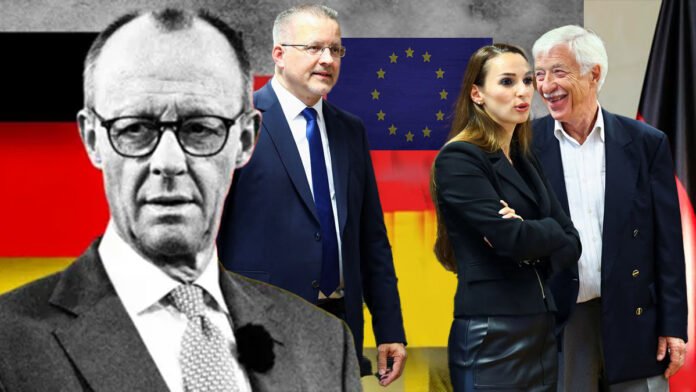Support for ADF triples in Western German vote
Support for Germany’s far right surged in local elections in the country’s most populous state on Sunday, sending a warning to conservative Chancellor Friedrich Merz’s four-month-old national coalition with the Social Democrats, early projections showed.
Germany’s far-right Alternative für Deutschland (AfD) has more than tripled its support in local elections in North Rhine-Westphalia, the country’s most populous state. Winning 16.5% of the vote, the party now commands a foothold in a region often seen as the bellwether of German politics.
The governing Christian Democrats under Chancellor Friedrich Merz topped the poll with 34%, barely maintaining their grip in what was once a heartland of political stability. The Social Democrats followed with 22.5%, while the Greens and Free Democrats suffered heavy losses. In contrast, the AfD surged from 5.1% in 2020 to 16.5% this year, cementing its role as Germany’s most disruptive political force.
North Rhine-Westphalia matters. Home to nearly a quarter of Germany’s citizens, it contains everything from student-heavy cities and industrial towns scarred by deindustrialisation to rural farmland and immigrant communities. Nearly 14 million voters, larger than the entire electorate of many EU states, determined 20,000 council seats and mayoral positions. With turnout up to 59%, the AfD has not only made itself visible; it has made itself viable.
The mainstream parties continue to console themselves with talk of a “firewall” against collaboration with the far right. Yet history shows that when the far right embeds itself locally, in mayoralties, councils, and community posts, it becomes far harder to isolate. The AfD is already on track to repeat the sweeping gains it has made in the east of the country, and has openly set 2027 as the year it will enter the federal government.

The causes are hardly mysterious. Germany’s economy is faltering, unemployment is creeping upwards, and anxieties over immigration remain potent despite official assurances. Merz has promised to get the economy “back on track” and to toughen migration policy, but voters are not convinced.
The AfD, meanwhile, positions itself as the only party willing to speak bluntly about issues that the mainstream treats as toxic. It has made immigration its rallying cry, after the open-door policies of the liberals, but it also scores points on energy provision, education, and the cost of living, subjects that resonate deeply, even if local authorities cannot directly change them.
The symbolism is stark. The AfD’s rise comes as Europe as a whole drifts rightward. From Italy’s Giorgia Meloni to France’s Marine Le Pen, nationalist and identitarian parties are tightening their grip. The EU, far from offering a bulwark against extremism, is itself hardening under the pressures of austerity, security fears, and a militarised response to the war in Ukraine. It is not only the far right that is marching rightwards; the so-called centre is moving with it. Merz’s own CDU, long the party of “moderate conservatism,” now openly borrows from AfD talking points on immigration in an attempt to stem the tide.

This is how democracy decays: not with a sudden seizure of power but through a steady shift of the political spectrum, normalising what was once unthinkable. The AfD does not need to win a majority to change Germany. Its presence already drags the debate further into its territory, forcing the mainstream to chase its voters by adopting watered-down versions of its policies. In this way, the firewall is breached without ever being officially dismantled.
But there is another side to this decay, the left’s abdication of its historic mission. When left-wing parties reduce themselves to liberal showpieces for identity politics and culture wars, they surrender the ground on which they were built. Economic struggle, once the core of socialist politics, is quietly replaced by a neoliberal consensus that treats market orthodoxy as untouchable. Working people hear little about wages, housing, or industrial strategy, and much about symbolic battles that seem remote from their everyday lives. In that vacuum, the far right finds room to grow, offering a crude but recognisable alternative to a centre that has collapsed under the weight of its own complacency.
This is the deeper tragedy: the far right thrives not simply because it mobilises resentment, but because the supposed left has abandoned class politics in favour of cultural theatre. Strip socialism of its economic content and it becomes indistinguishable from the liberal order it once opposed, leaving nationalism, however distorted, to claim the mantle of “authentic opposition.”
The lesson should be clear. When the economic system fails ordinary people, when wages stagnate and communities are left behind, the vacuum will not remain empty. If the left cannot provide a credible populist alternative rooted in class politics and solidarity, the right will step in with cultural scapegoats and nationalist myths.
The EU likes to portray itself as the guarantor of stability and democracy. Yet what we are seeing is something far darker: an entire continent goosestepping slowly but surely towards authoritarianism, while Brussels insists all is well. North Rhine-Westphalia is not just a German story. It is a European warning.
Support Independent Journalism Today
Our unwavering dedication is to provide you with unbiased news, diverse perspectives, and insightful opinions. We're on a mission to ensure that those in positions of power are held accountable for their actions, but we can't do it alone. Labour Heartlands is primarily funded by me, Paul Knaggs, and by the generous contributions of readers like you. Your donations keep us going and help us uphold the principles of independent journalism. Join us in our quest for truth, transparency, and accountability – donate today and be a part of our mission!
Like everyone else, we're facing challenges, and we need your help to stay online and continue providing crucial journalism. Every contribution, no matter how small, goes a long way in helping us thrive. By becoming one of our donors, you become a vital part of our mission to uncover the truth and uphold the values of democracy.
While we maintain our independence from political affiliations, we stand united against corruption, injustice, and the erosion of free speech, truth, and democracy. We believe in the power of accurate information in a democracy, and we consider facts non-negotiable.
Your support, no matter the amount, can make a significant impact. Together, we can make a difference and continue our journey toward a more informed and just society.
Thank you for supporting Labour Heartlands









